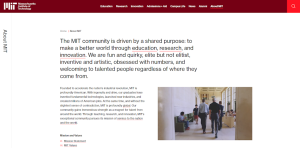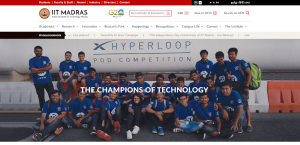Top 10 AI Projects Useful in Healthcare
1. Utilizing Artificial Intelligence to Analyze Medical Images:

Difficulty: Prejudice in training data, obtaining regulatory approval, incorporating findings into processes.
Issue: Examine vast amounts of medical images with precision and efficiency for early detection of diseases.
AI method: Utilizing Convolutional Neural Networks (CNNs) trained on various image databases.
Result: Timelier diagnoses, decreased healthcare expenses, tailored treatment strategies.
2. Proactive Healthcare Forecasting:

Issue: Recognizing individuals at risk of developing illnesses or complications in advance.
AI method: Algorithms based on machine learning analyzing electronic health records and additional information.
Difficulty: Safeguarding data privacy, interpreting models, addressing social factors influencing health.
Result: Preventative measures, decreased hospitalizations, enhanced overall health of the community.
3. Digital Helpers for Emotional Well-being:

Issue: Expanding access to mental health assistance and reducing social stigma.
AI method: Chatbots utilizing natural language understanding and emotion analysis.
Difficulty: Ensuring empathy and trustworthiness, managing intricate emotions, ethical concerns. Result: Providing initial assistance, linking users to support systems, delivering mental health education.
4. AI Generation for Pharmaceutical Design:

Issue: Speed up the process of discovering and creating drugs with a higher rate of success.
AI Strategy: Produce new drug compounds with specific characteristics utilizing Generative Adversarial Networks (GANs).
Obstacle: Ensuring the safety and effectiveness of drugs, navigating regulatory obstacles, considering ethical implications of AI-generated medications.
Outcome: Quicker production of crucial medications, tailored medical treatments, meeting the needs of underserved populations.
5. AI-driven Clinical Trial Matching:

Issue: Enhancing the effectiveness and inclusivity of clinical trials by connecting patients with suitable opportunities.
AI Strategy: Utilizing machine learning algorithms to analyze patient information and trial criteria.
Obstacle: Ensuring data security and privacy, mitigating biases in algorithms, promoting inclusivity.
Result: Quicker patient recruitment, more diverse trials, advancements in personalized medicine.
6. AI-driven Robotic Surgical Procedures:

Issue: Improving accuracy and reducing risks in minimally invasive surgeries.
AI Strategy: Utilizing robots guided by AI algorithms and machine learning for real-time decision-making.
Obstacle: Obtaining regulatory approval, managing costs and accessibility, gaining acceptance and training surgeons.
Result: Enhanced surgical outcomes, shortened recovery times, increased access to complex procedures.
7. Automated Administrative Functions:

Issue: Allowing healthcare professionals more time for patient care by automating administrative tasks.
AI Strategy: Implementing natural language processing (NLP) for chatbot assistance, using computer vision for document processing.
Obstacle: Handling complex tasks, ensuring precision and data privacy, integrating with current systems.
Result: Enhanced operational efficiency, reduced burnout, increased time for patient interactions.
8. AI-powered Wearable Health Monitoring:

Issue: Continuously monitoring vital signs and detecting early health issues through wearable devices.
AI Strategy: Employing machine learning algorithms to analyze sensor data from smartwatches and other gadgets.
Obstacle: Safeguarding data privacy and security, obtaining user acceptance and adherence, managing false alarms.
Result: Personalized health insights, proactive interventions, improved disease management.
9. Digital Therapeutics for Persistent Ailments:

Issue: Deliver customized therapy strategies and assistance for overseeing persistent conditions from a distance.
AI Strategy: AI-driven platforms providing chatbots, informative material, and personalized interventions.
Obstacle: Ensuring clinical efficacy, integrating with current therapy strategies, tackling accessibility discrepancies.
Result: Enhanced self-care, superior health results, reduced healthcare expenses.
10. AI-driven Chatbots for Patient Education:

Issue: Offer precise and convenient health details promptly to patients.
AI Strategy: Chatbots trained on medical databases and capable of addressing patient inquiries.
Obstacle: Ensuring accuracy and relevance of details, tackling intricate topics, preventing misinformation.
Result: Empowering patients, enhancing health knowledge, endorsing collaborative decision-making.














Post Comment